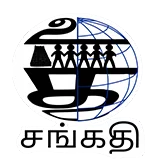
by Arjuna Senarathna
When a country is in crisis, every little saving, every small opportunity, every tiny chance must be seized with alacrity. If a single person refuses to buy foreign made goods because they are automatically subsidized by the defence of the rupee against the dollar that is indeed an opportunity taken to save something not only for the family but for the nation as well. If the entire nation stops purchasing them, then the saving will be massive. What is needed is an increase in knowledge, a deepening of awareness and the bravery to break a bad habit and take on a better and more meaningful one. It is not easy because the chance is hidden by habit that must first be stripped off for the potency of a small act to be revealed.
It is the same with the massive amounts of material we bring into our homes only to discard them by giving it the derogatory names “garbage”, “waste” and “refuse”. The issue here is that a chance is hidden at the point of its acquisition. When a person buys say… butter, that person has trained him or herself to think “I bought 500g of butter”. However, the reality is that the person has bought a plastic bag, a cardboard pack, a cellophane wrapper whose costs have been added to the butter. Well, we can consume the butter but can we consume the unasked for other “purchases” that we paid for? What do we do? We are mad enough to throw something we bought out the window. We feel we cannot deal with it. Having admitted to incompetence, we let the garbage collector and the municipal council or urban council have a go at solving the problem. Do they? No. They cannot solve it either. That is why they too try to get rid of it either in a hole in the ground or piled up into a mountain that subsequently proceeds to poison thousands and kill a few dozen on April 14th of this year or that.
In a nation in crisis, to continue with that bad practice is the worst thing imaginable when every bit and piece becomes precious and wasting anything for any reason whatsoever is a sacrilege.
Suppose a household or a workplace were to gather all of these inadvertently purchased materials and sell it? In an instant, the refuse has turned into a resource. For a typical family, it means that there is at least a few kilograms of material to sell a day. For a nation of 21 million people? If done right, it can only be called one word: “wealth”.
What is needed is increased knowledge of the potency of something that has hitherto been discarded. What is needed is a heightened awareness that with every bit of such material that is thrown away, a family is actually losing money. What is needed is a painless system through which they can get the material to a buyer who will pay cash on the barrelhead.
With World Vision’s PHILA project, such a system is indeed in place. With resource banks (not collection centres or garbage point since it is a resource of significant economic value), placed at strategic locations in three locales where the method was pilot tested, resounding success was seen as outlined in the diagram.
They will now proceed to make this a whole-of-nation effort with all local government officials getting involved when they hold their national forum to upscale its success to the entire island.
In a time of crisis, it is indeed a fantastic opportunity for each and every one of us to execute our responsibility as citizens, break bad habits and take on the challenge of reimagining our country as a clean island without actually trying too hard.
It only requires people to change their mind set. It only requires them to refuse to call it refuse. It only requires them to call it a resource. It only requires them to call it cash.

